Enjoy the fourth story from Bernadette Gagnier, WSU V&E PhD Research Student.
What can I say about July. I am writing this story in September and I swear that July was yesterday…but it also seems like six months ago. Summer flew by. I think I say that in every story I write for this program, but summer really seemed to disappear in a flash.
I think each year (in grad school at least) July is the month that has the most packed into it. I soil sampled fallow ground (again and still), I picked apricots while out sampling fallow ground, I inoculated a greenhouse trial, I taught a plant pathology class about my research, I drove the UVC machine for a couple weeks while my coworker was gone, and I helped fix the tractor that pulls the UVC machine. This is all along with the day-to-day work that has to get done each season.
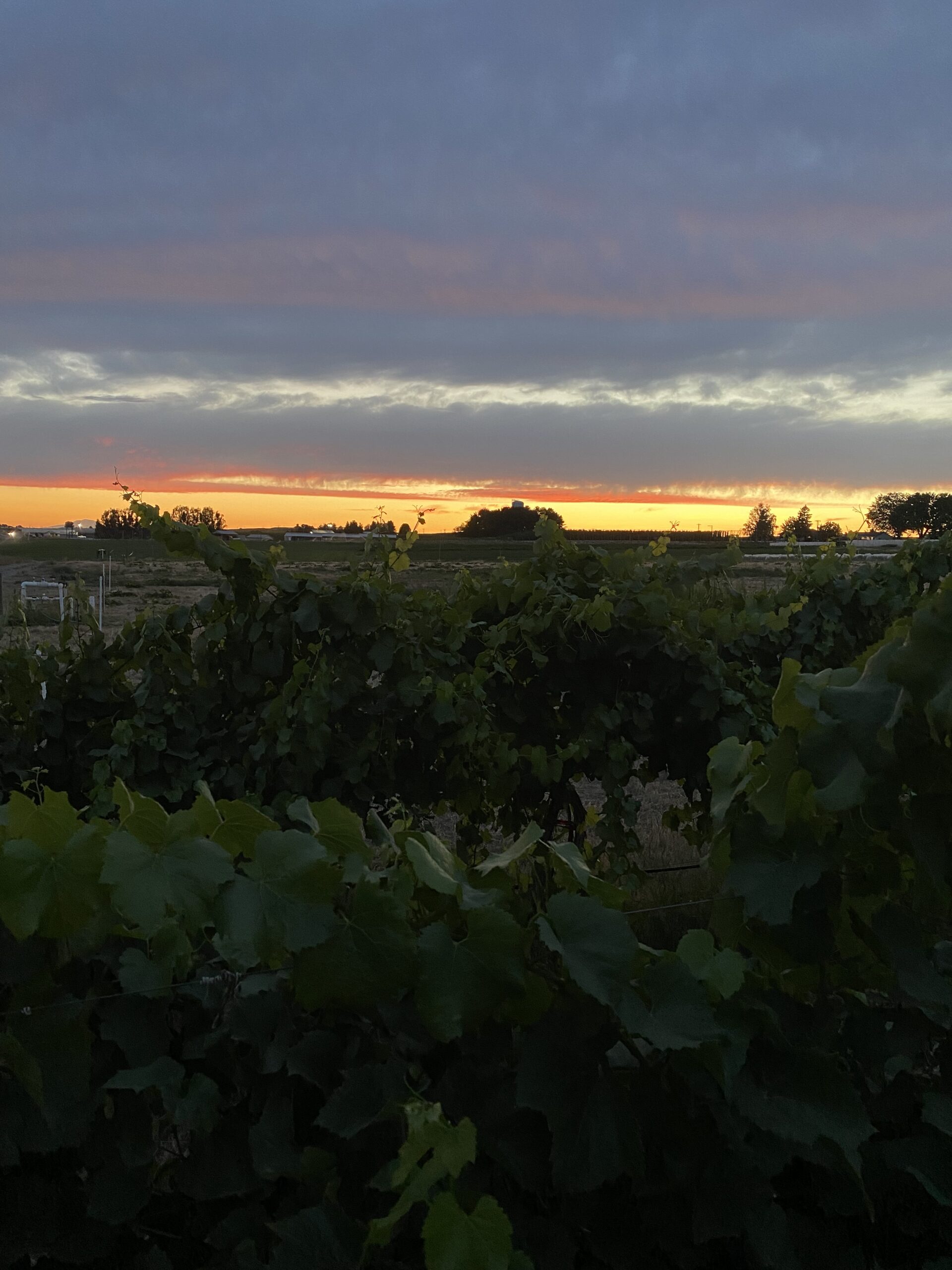
The fallow ground soil sampling is a continuation of the research I have been doing over the year, I wrote a little more about it in one of my previous stories! I am one of those people that will stop and look at rocks everywhere I go. It was my first sample of the day and I found an agate! I love the vineyards in Washington state, I am such a rock nerd and the variation in rock deposits across the state is incredible.
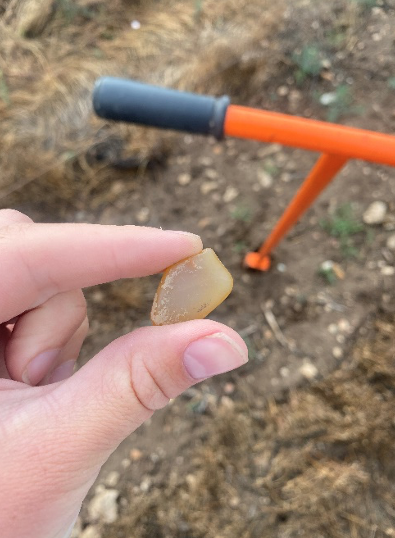
We went to a few different locations for fallow ground soil samples in July. While we were waiting for someone to show us one of the vineyard blocks to sample and we got to stop by a friend’s house and pick apricots. These were seriously the prettiest apricots I’ve ever seen!
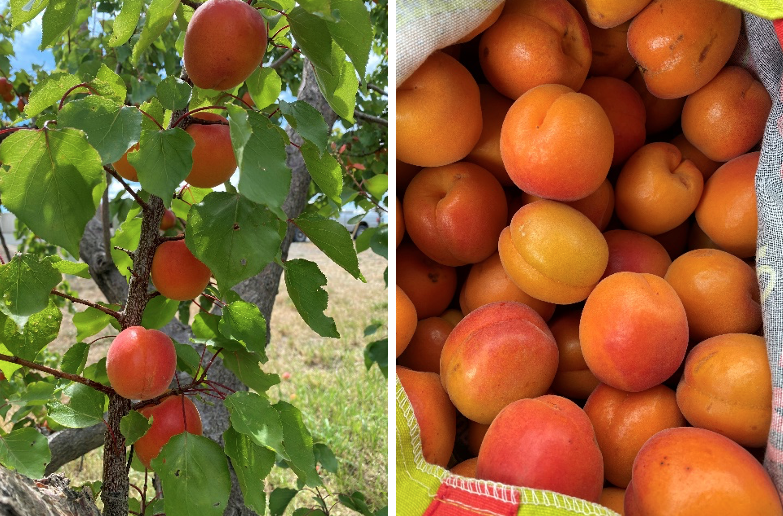
So what does inoculating a greenhouse mean? My research work revolves around reducing a plant parasitic nematode (microscopic round worm) that is detrimental to Washington State vineyards. I have a greenhouse trial that looks at rootstock varieties for tolerance or resistance to damage caused by these microscopic pests. This way a grower could graft their desired wine grape (chardonnay, cab sauv… you name it) onto a resistant rootstock and not incur the economic loss from plant parasitic nematode damage. I am using rootstocks that are potted in a greenhouse, which I then add a bunch of plant parasitic nematode egg to, allow them to complete a lifecycle and then evaluate how many plant parasitic nematodes are in the soil and roots of the potted rootstocks. The ones that had fewer nematodes survive have a higher resistance level!
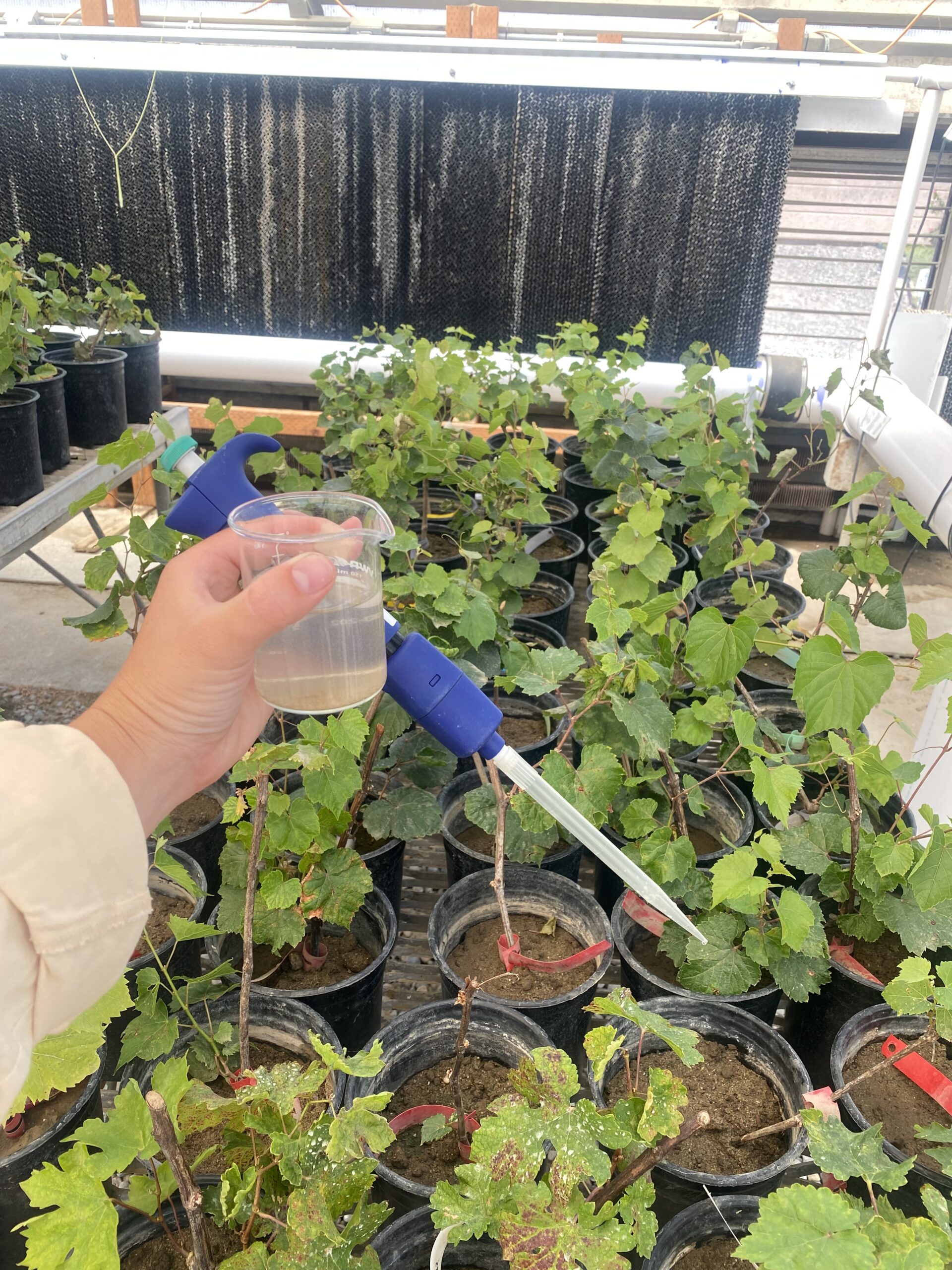
Alright last thing for July; I absolutely love getting to talk about the research I am doing, better yet in an informal setting! I had the chance to share the work I am doing in Washington State vineyards with a graduate level plant pathology class based out of WSU in Pullman WA.
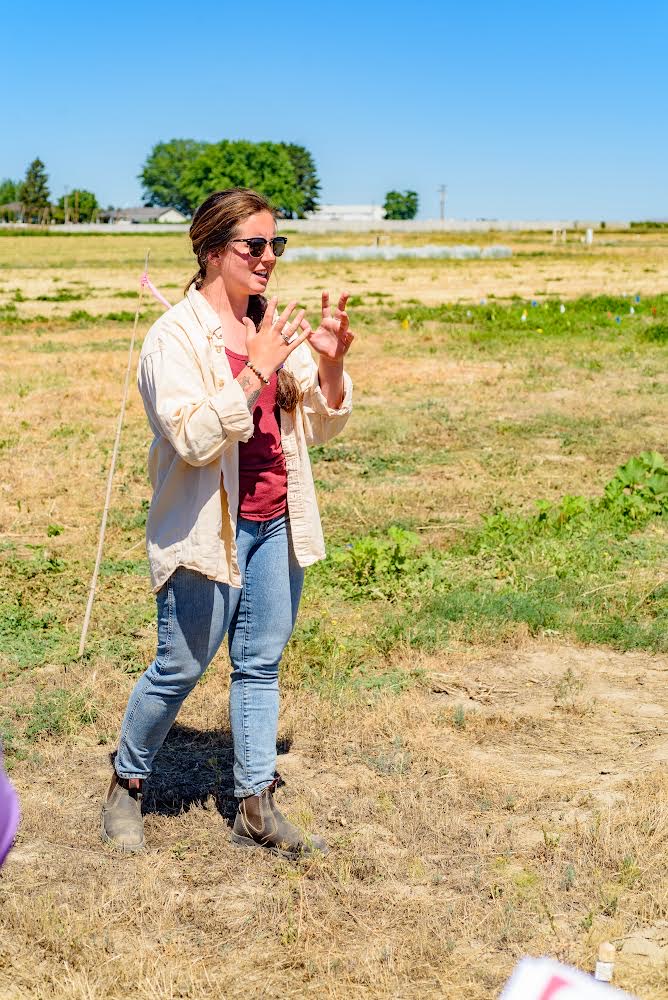
Grad school can be exhausting and at a certain point you get lost in the research of things and forget the impact you are making, especially the sustainability work my lab is doing. Getting to bring other students to our research blocks, to show and share with them the practices we are researching to drive Washington wine forward is a great reminder of why I am here. The research we are doing in our lab can be tweaked and adjusted fairly easily for other crops and agricultural systems. Much of our work is inspired by promising results in other crops. Sharing with an audience beyond those in the wine industry, not only illuminates Washington Wine, but the sustainability efforts that can be applied across agriculture. I feel extremely lucky to have found an industry I am so passionate about. I often say that my graduate research and the nature of my projects is the little bit of good I get to do for this planet. Sharing my little bit of good for the Washington Wine industry is one of the best things of being a graduate student.
Our translation team is working on this. Please check back!

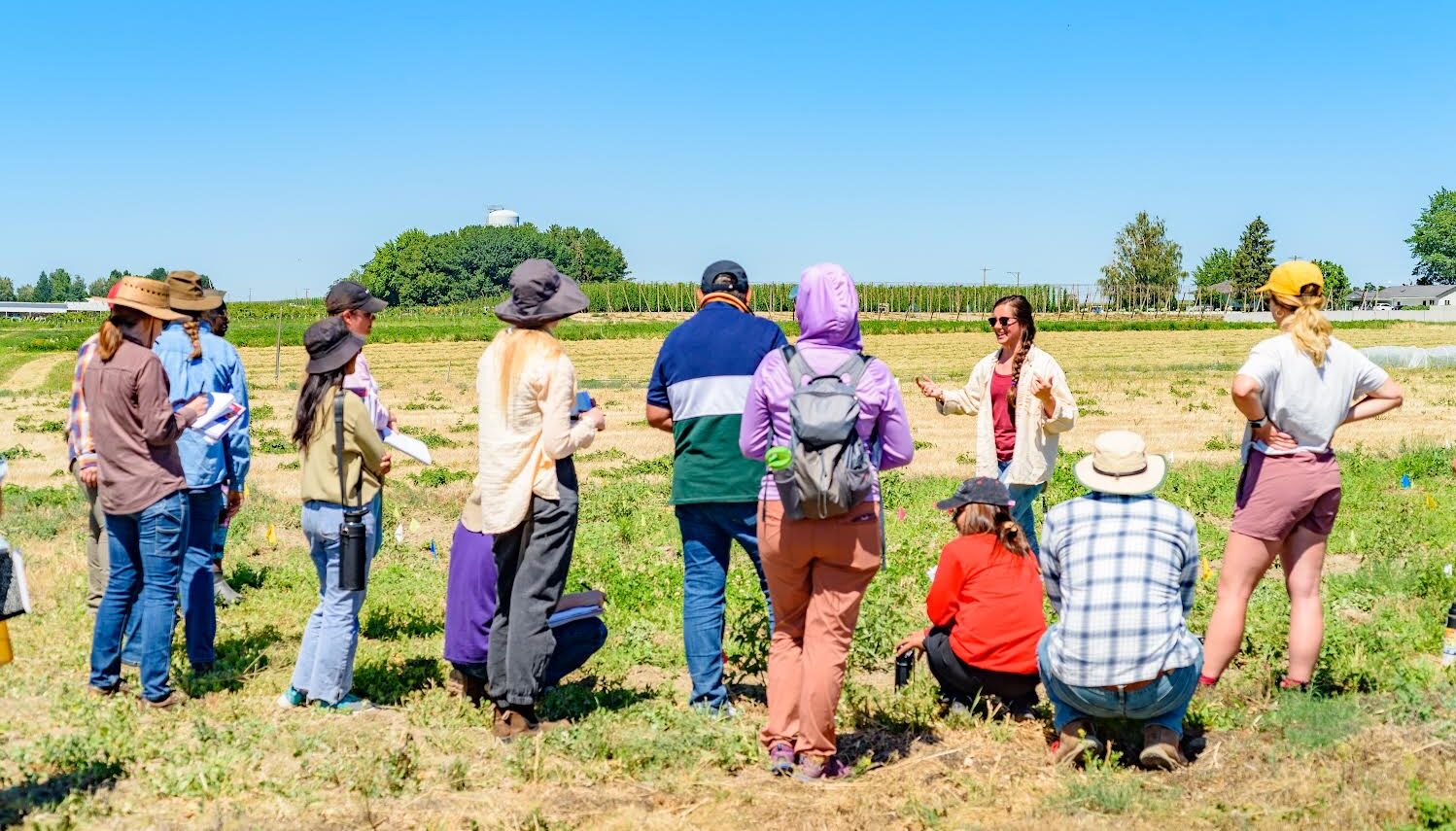
Join the Conversation